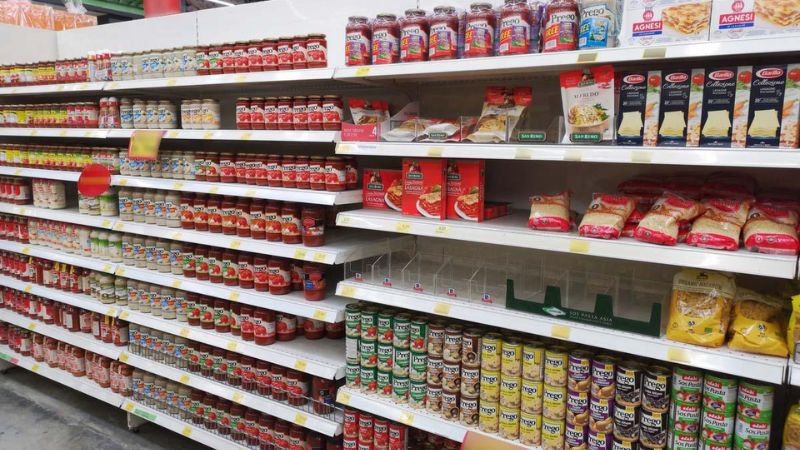The price of food in Maltese supermarkets has risen by almost 11% during the last year, posing a significant problem for consumers, while general inflation has fallen, dipping below the eurozone average.
Last week, Finance Minister Clyde Caruana warned that inflation is here to stay, hinting at austerity measures and belt-tightening in the next budget in light of possible EU intervention due to Malta’s high deficit.
While inflation has fallen to 5%, according to recent data from EUROSTAT, just below the eurozone average of 5.2% and a significant drop from the high of 7.3% in March, this has not had a knock-on effect on food, putting many families at risk.
Data published by the National Office of Statistics found that the cost of food increased by 10.7% in August 2023 when compared to the same month in 2022. The second highest rate of inflation was that of housing, water, electricity and other fuels at a rate of 7.4%.
The reason for the big increase in the cost of food, the NSO reports, is linked to the prices of bakery products. This saw prices increase by 1.79 percentage points on the previous month, as well as the restaurants and hotels index rising by 1.43 percentage points. This is likely due to the increase the cost of food and drink used in such establishments.
August 2023 data shows that patrons must pay almost 6% more than they used to just a year earlier to dine in a Maltese restaurant while cooking at home does not save much money either.
All items in Malta’s ‘basket of goods and services’ used to measure inflation were up in the past year, except for communications such as mobile and internet packages. Rent also registered a steep increase when compared to a year earlier.
Contrary to what the finance minister said, inflation in Malta and the EU has been on a consistent downward trend for the past year, but the deficit remains a cause for concern.
Since Prime Minister Robert Abela took the helm in January 2020, public debt has soared by at least €3.5 billion to €9.2 billion as of June 2022. While more recent figures are not yet available, the debt increase continues as interest rates remain high.
In June, the Council of the European Union’s recommendation on Malta’s 2023 National Reform Programme warned that the European Commission will likely propose opening deficit-based excessive deficit procedures against Malta in spring 2024 based on Malta’s data for 2023.
Last May, the Commission published a report on Malta’s budgetary situation since its general government deficit in 2022 exceeded the 3% of GDP threshold. The report concluded that the EU’s deficit criterion was not fulfilled.
Despite the breach, the Commission did not propose the opening of excessive deficit procedures against Malta last spring but said it would propose doing so in 2024.
Malta has been keeping its annual inflation statistics artificially low through hundreds of millions in subsidies in the energy sector. At the same time, it kept spending millions a year through unprecedented borrowing, which led to an increase in the deficit.
Meanwhile, as of December 2022, the At Risk of Poverty Rate was at 16.7% of the population, according to EUROSTAT. While this is lower than in the past, considering the increase in Malta’s population, it equates to some 100,000 people living at risk of poverty.
But data has found that the gap between high and low earners is increasing, and the share of disposable income is decreasing.














The world economy has been juiced by central bankers and government treasuries ever since the 2008 cluster…., which was the result of equally unfounded fantasies. Those of us old enough to know better have been warning that rampant inflation has always followed overly loose monetary policy. But did any of the millennial bright boys and girls arquing otherwise listen. Of course not. So, here we are. The jig is up and it’s time to pay the piper. Nothing that a sufficiently severe recession won’t cure, though.